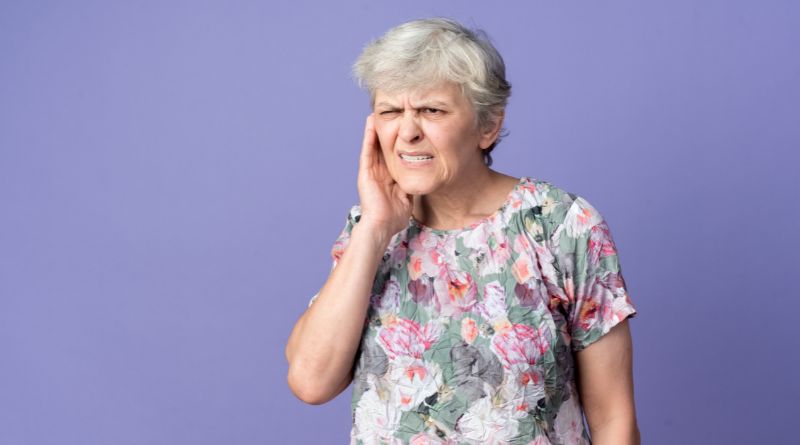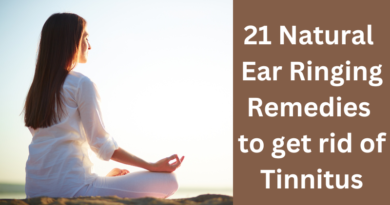10 Lifestyle Changes That Could Aid in the Quest for a Tinnitus Cure
The ceaseless hum, ring, or buzz of tinnitus can take a significant toll on one’s quality of life. Despite ongoing medical research, a definitive tinnitus cure remains elusive. However, numerous lifestyle modifications have been identified that could aid in managing this condition’s symptoms and possibly even reducing their severity.
This comprehensive guide will delve into ten such changes and explore the potential benefits of Quietum Plus, a natural supplement for auditory health support.
Table of Contents
Decoding Tinnitus
Tinnitus is an auditory phenomenon where individuals perceive sound — such as ringing, humming, or buzzing — in the absence of any external noise source. It’s a common yet complex condition that, while not dangerous, can be significantly disruptive, leading to a determined quest for a tinnitus cure.
1. Minimizing Exposure to Loud Noises
The journey towards a possible tinnitus cure begins with protecting your auditory health. If your routine exposes you to loud sounds, reducing this exposure could help manage or even prevent tinnitus.
2. Using Protective Ear Gear
For those who cannot avoid loud noises, protective ear devices such as earplugs or earmuffs can act as an essential shield, possibly preventing the onset or worsening of tinnitus.
3. Promoting Overall Health and Wellness
Regular physical activity, a balanced diet, and ample sleep can all contribute to overall health, including your auditory health. Such habits could potentially help reduce the symptoms of tinnitus, aiding in your pursuit of a tinnitus cure.
4. Moderating Alcohol and Caffeine
Both alcohol and caffeine can exacerbate tinnitus in some individuals. Limiting the intake of these substances could assist in your journey towards a tinnitus cure.
5. Practicing Stress Management Techniques
Stress can significantly impact the severity of tinnitus. Incorporating stress management strategies into your routine could aid in managing tinnitus symptoms, bringing you closer to a potential tinnitus cure.
6. Evaluating Your Medications
Certain medications, known as ototoxic drugs, can contribute to or aggravate tinnitus. If you suspect your medicine may be exacerbating your tinnitus, discussing potential alternatives with your healthcare provider could be a crucial step towards a tinnitus cure.
7. Exploring Sound Therapy
Sound therapy uses external noise to mask the internal sound of tinnitus, making it less intrusive. This could be a useful tool in your quest for a tinnitus cure.
8. Trying Cognitive Behavioral Therapy (CBT)
CBT can help individuals manage their response to tinnitus, changing their perception of the condition, and potentially reducing its impact, bringing us closer to finding an effective tinnitus cure.
9. Prioritizing Good Sleep Hygiene
Poor sleep can worsen tinnitus symptoms. By improving your sleep hygiene, you could potentially manage your tinnitus more effectively, another significant step in the pursuit of a tinnitus cure.
10. Considering Quietum Plus
This natural supplement, designed to support ear health, could potentially provide relief from tinnitus symptoms. Integrating Quietum Plus into your routine might be a helpful component of your strategy in the quest for a tinnitus cure.
Quietum Plus: A Potential Ally in Your Quest for a Tinnitus Cure
Quietum Plus offers a natural approach to managing tinnitus. It’s ingredients work in concert to support auditory health, potentially providing relief from tinnitus symptoms. Including Quietum Plus in your tinnitus management strategy could be an important step towards finding your personal tinnitus cure.
Conclusion
While the quest for a definitive tinnitus cure continues, the lifestyle changes mentioned above could potentially help manage tinnitus symptoms and improve your quality of life. Quietum Plus, with its natural formulation and focused action, may prove to be a valuable ally in your journey towards a tinnitus cure. Remember, tinnitus is a medical condition, and it’s always important to consult with a healthcare professional if your symptoms persist or cause significant distress.




